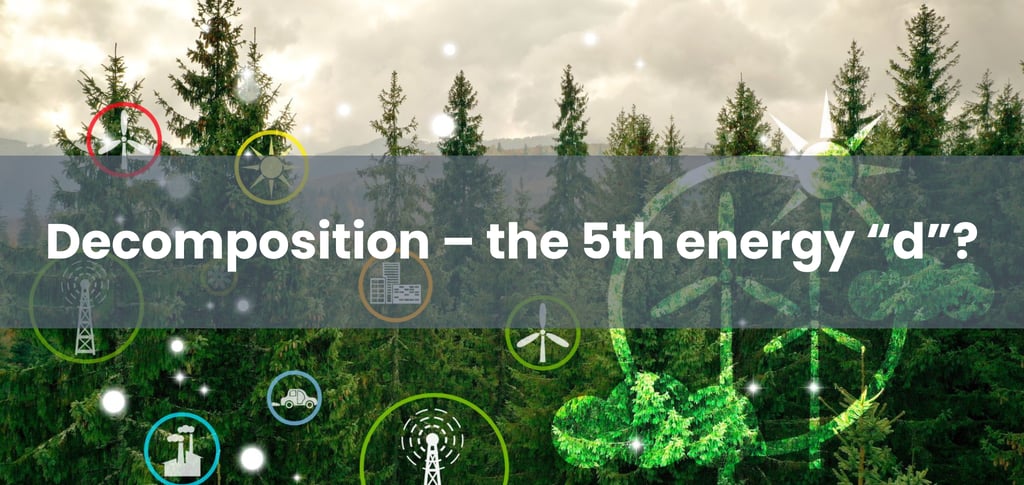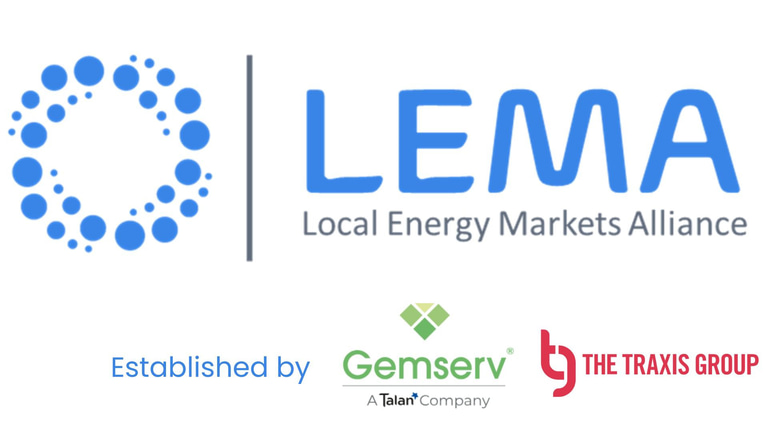Decomposition – the 5th energy “d”?
In this blog we explore how breaking down complex energy challenges into manageable parts can accelerate decarbonisation. Learn how LEMA is addressing market barriers to make Local Energy Systems commercially viable by applying this principle. Click to read more.
Simon Anderson
1/26/20242 min read


Decomposition – the 5th energy “d”?
We all know the mantra ‘decarbonisation, decentralisation, digitisation and democratisation’, but are we missing a 5th one: decomposition!
Decomposition is a well-known technique for breaking down a complex problem or system into smaller parts that are more manageable and easier to understand. The smaller parts can then be examined and solved or designed, individually, as they are simpler to work with. If a problem is not decomposed, it is much harder to solve.
Decarbonising demand is a massive challenge involving hundreds of millions of Low Carbon Technologies (LCTs), tens of millions of homes and millions of businesses. In preparation, local grid strengthening will affect hundreds of thousands of transformers, tens of thousands of sub stations and many miles of cabling. Then there is the challenge of data, data sharing, interoperability, and data security. Nor does this address consumer affordability – with LCTs being barely affordable, consumer adoption rates will remain slow.
There is broad agreement that Smart Local Energy Systems can contribute huge value to the energy transition. They are a practical form of decomposition. What is frustrating is that whilst the technology has been demonstrated several times over, the business aspects have yet to be addressed and therefore the systems are not commercially viable.
Furthermore, because of their local nature, different organisations and people can be involved each time. This can mean starting from scratch, learning new skills and more than likely different ways of doing things impacting time, cost, and quality.
This is the challenge that the Local Energy Markets Alliance (LEMA) is set up to address: collectively solving common market barriers to help create a commercially viable market for Local Energy Systems
A market is like a technical system – it needs several elements to be integrated to form the system. In LEMA, alliance members working collaboratively will develop generic trading models, framework agreements, platform requirements, guidance materials etc. – all the parts of the jigsaw that govern the funding, building, operating, and maintaining of local energy systems to make them commercially viable.
Across Europe momentum and interest is building. LEMA, applying the principle of the 5th “D” – decomposition - is intended to accelerate the development of a very significant market.
Read more about the Alliance member's objectives here and how you can get involved here.
